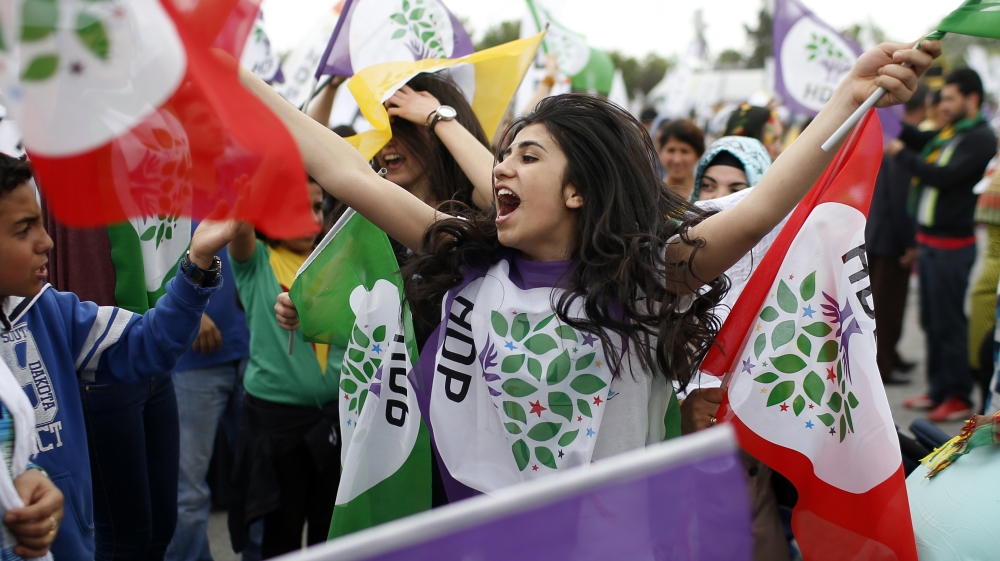
Syria can seem an endless black hole of misery. But in the northern, largely Kurdish region of Rojava, it is also the scene of a profoundly democratic and humanist revolution, which places the rights of ethnic minorities and women's liberation at its centre.

 Peter Boyle speaking at World KobanГӘ Day rally, Sydney, November 1.
Peter Boyle gave this speech on behalf of Socialist Alliance at the Sydney rally for World KobanГӘ Day on November 1.
* * *
I am here to bring you greetings from the Socialist Alliance and the progressive newspaper 91ЧФЕДВЫМі Weekly.
Peter Boyle speaking at World KobanГӘ Day rally, Sydney, November 1.
Peter Boyle gave this speech on behalf of Socialist Alliance at the Sydney rally for World KobanГӘ Day on November 1.
* * *
I am here to bring you greetings from the Socialist Alliance and the progressive newspaper 91ЧФЕДВЫМі Weekly.


 Activists from Turkey's Kurdish lead People's Democratic Party (HDP).
Activists from Turkey's Kurdish lead People's Democratic Party (HDP).





